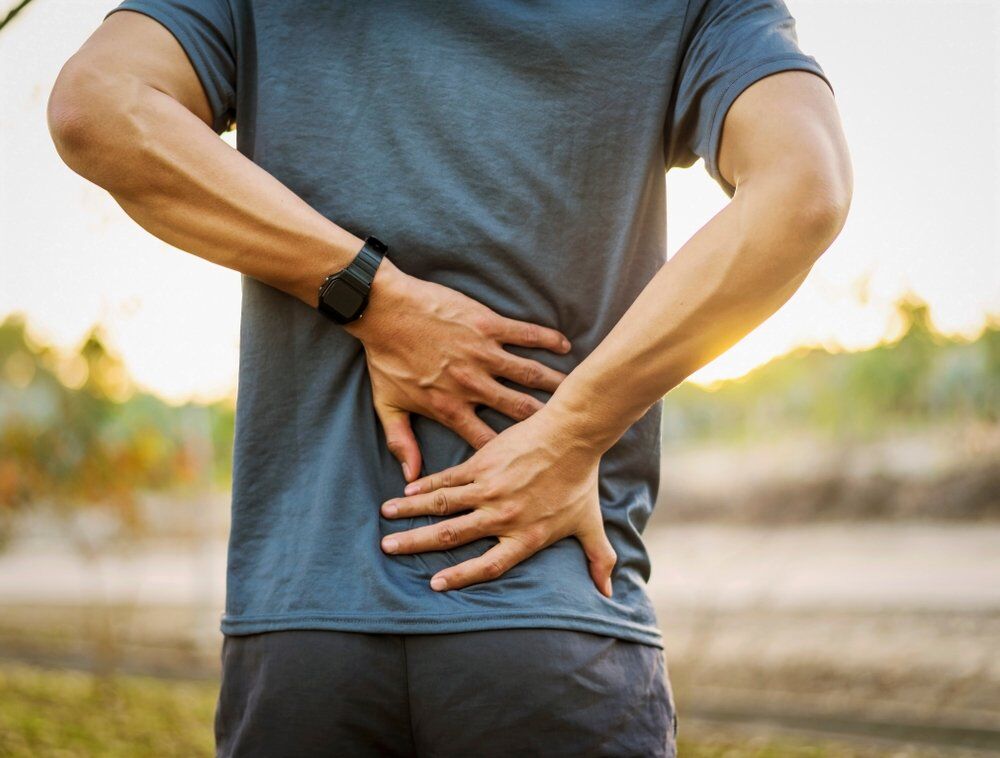6 Myths & Facts About Back Pain

Myth: BACK PAIN WON’T HAPPEN TO ME!
Fact: Back pain is extremely prevalent. Indeed, about 8 out of 10 people will experience back pain during their lifetime. Low back pain is:
The most common cause of disability for people younger than 45 years of age.
The second most common reason for visits to the doctor’s office.
Is responsible for about 15% of all sick leave from work.
Myth: THE BEST CURE FOR BACK PAIN IS BED REST!
Fact: Prolonged bed rest for more than a day or two could worsen your back pain. The back muscles could become deconditioned and stiff with prolonged inactivity. In addition, lying in bed all the time could cause emotional distress and depression.
Myth: PHYSICALLY ACTIVE INDIVIDUALS DON’T SUFFER FROM BACK PAIN!
Fact: Back pain can affect all people regardless of their level of activity. It is true, however, that physically active and well-conditioned individuals are less likely to suffer an episode of back pain when compared to those with more sedentary lifestyles.
Myth: OLD AGE IS THE CAUSE OF MY BACK PAIN!
Fact: It is true that degeneration of the spine and its constituents is a natural part of the aging process. While aging could make us more susceptible to certain painful back conditions, it is not always accompanied by pain. As a matter of fact, the highest incidence of back pain is typically between the ages of 35 and 55. Regardless of your age, if you are suffering from back pain and your quality of life has been negatively impacted, you should seek a medical advice.
Myth: I WILL BECOME ADDICTED TO PAIN MEDICATIONS!
Fact: Not all types of pain medications cause addiction. Non-Steroidal Anti-Inflammatory Drugs, or NSAIDs, are typically recommended for back pain as a first-line treatment option. In some instances of chronic back pain, a patient might require stronger types of pain medications, such as, opioids. With a very well-defined treatment plan and close monitoring, the risks of dependence and addiction from the use of such drugs could be reduced. This type of treatment plan is better-executed under the care of a well-trained pain management specialist.
Myth: MY BACK PAIN WILL ONLY GET BETTER AFTER SURGERY!
Fact: Most cases of back pain will improve and get better without treatment or with conservative management such as NSAIDs, physical therapy and exercise. Surgery should only be considered as a last resort and after all conservative treatments have been exhausted.
www.DrAbdulhamid.com
Follow Me on:
Facebook: https://www.facebook.com/DrMAbdulhamid
Twitter: https://twitter.com/DrMAbdulhamid
About The Author
-

Dr. Abdulhamid is a highly skilled and experienced board-certified neurosurgeon with a passion for providing exceptional spine care. He specializes in minimally invasive spine surgery and has a reputation for achieving outstanding results for his patients. His commitment to excellence and patient-centered approach have earned him the trust and respect of his patients and colleagues alike.
RECENT POSTS
Three Reasons to Turn to Physical Therapy for Back Pain
Did You Know: Your Diet Could Be Contributing to Back Pain?
Exploring the Types of Back Surgery: A Comprehensive Guide
What to Expect During Spinal Decompression Therapy
Tips on How to Maintain Good Spinal Health
How You Can Protect Your Lumbar Vertebrae
Reasons to Discuss Your Back Pain With a Doctor
Understanding Dorsalgia: Causes, Symptoms & Treatment
How to Relieve Lower Back Pain at Home
What is Lumbago? Causes, Symptoms & Treatment
What To Do When You Experience Neck Pain
What Is Ultrasonic Spine Surgery?
How to Do Back Exercises for Back Pain
Ouch! Lower Back Spasms - Causes and Treatments
Why Have I Developed Back Pain After Surgery?
The Purpose of Spinal Decompression Surgery
Three Common Causes of Lower Back Pain
How to Prevent Back Pain at the Office
The Best Ways to Sleep With Back Pain
5 Daily Exercises for Better Spine Health
Is Your Mattress Causing Your Back Pain?
Supporting Back Health While Golfing